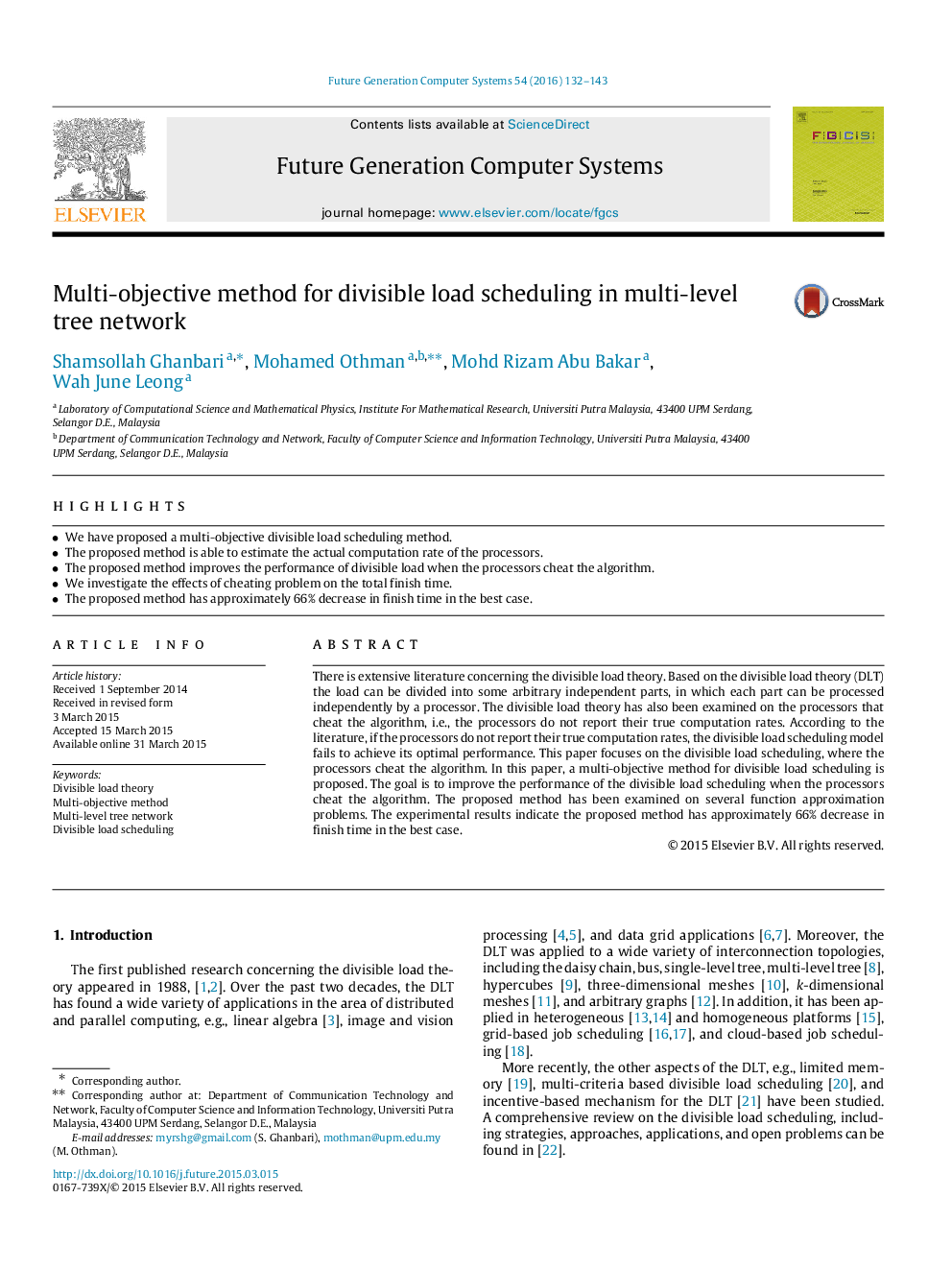| کد مقاله | کد نشریه | سال انتشار | مقاله انگلیسی | نسخه تمام متن |
|---|---|---|---|---|
| 424527 | 685587 | 2016 | 12 صفحه PDF | دانلود رایگان |
• We have proposed a multi-objective divisible load scheduling method.
• The proposed method is able to estimate the actual computation rate of the processors.
• The proposed method improves the performance of divisible load when the processors cheat the algorithm.
• We investigate the effects of cheating problem on the total finish time.
• The proposed method has approximately 66% decrease in finish time in the best case.
There is extensive literature concerning the divisible load theory. Based on the divisible load theory (DLT) the load can be divided into some arbitrary independent parts, in which each part can be processed independently by a processor. The divisible load theory has also been examined on the processors that cheat the algorithm, i.e., the processors do not report their true computation rates. According to the literature, if the processors do not report their true computation rates, the divisible load scheduling model fails to achieve its optimal performance. This paper focuses on the divisible load scheduling, where the processors cheat the algorithm. In this paper, a multi-objective method for divisible load scheduling is proposed. The goal is to improve the performance of the divisible load scheduling when the processors cheat the algorithm. The proposed method has been examined on several function approximation problems. The experimental results indicate the proposed method has approximately 66% decrease in finish time in the best case.
Journal: Future Generation Computer Systems - Volume 54, January 2016, Pages 132–143
